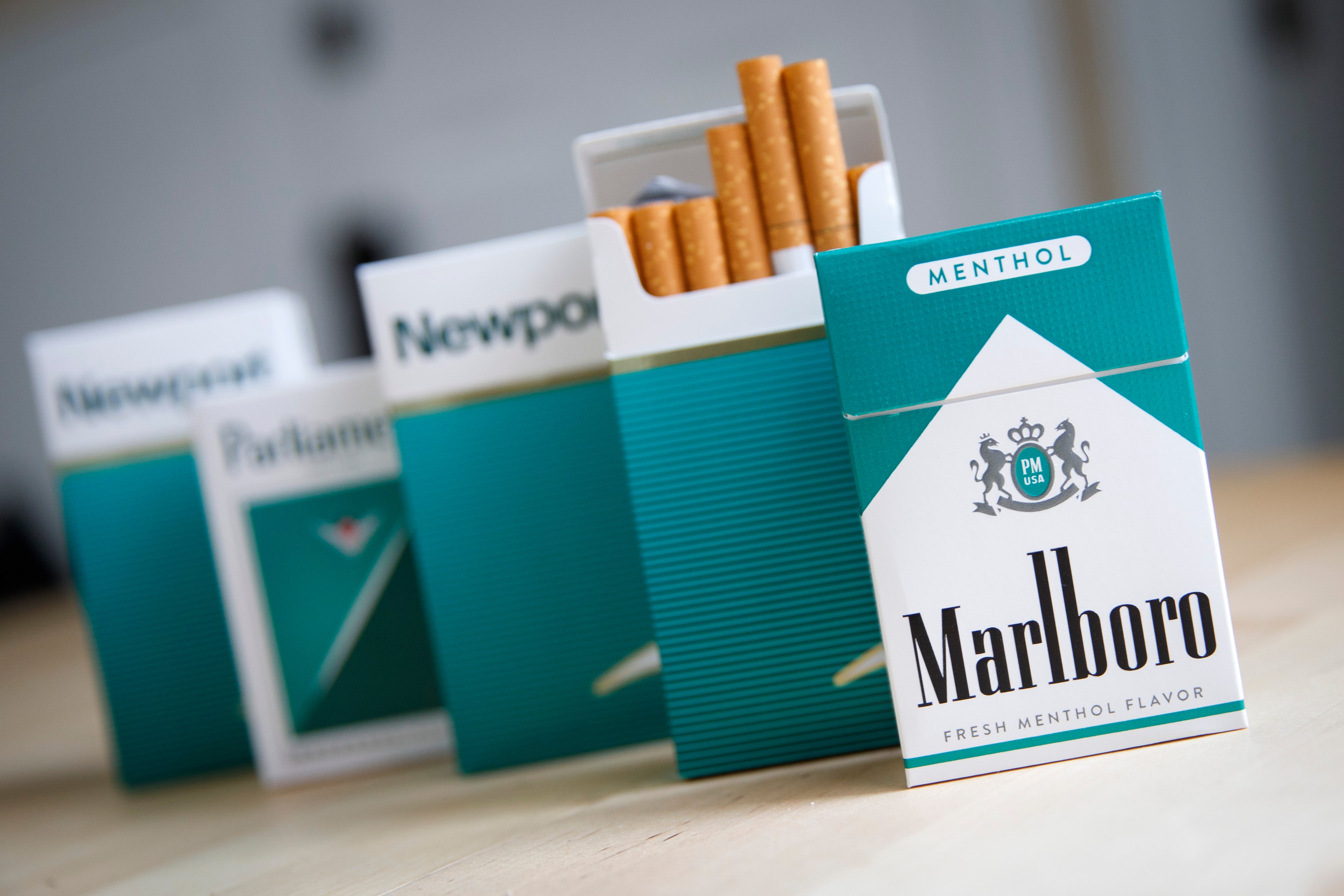US could ban menthol cigarettes in a win for racial health equity
Experts say that 85 per cent of Black smokers smoke menthol

The US is poised to ban menthol cigarettes in a move health experts say could have a positive impact on the health of Black Americans.
The vast majority of Black smokers, an estimated 85 per cent, use menthol cigarettes, and now the Food and Drug Administration is set to take action this week.
The FDA faces a Thursday court deadline to respond to a 2013 citizen petition urging it to ban menthol, in the same way it has other prohibited flavoured cigarettes.
The African American Tobacco Control Leadership Council and Action on Smoking and Health sued the FDA when it did not initially respond to the petition in time.
The ban, if approved, would not come into effect immediately. But the FDA would begin the process to change rules around menthol cigarettes, which could take years to complete.
The federal agency could also ask the court for more time and delay its decision.
Black Americans are much less likely than white Americans to be diagnosed with lung cancer at an early and treatable stage, and Black men have the highest lung cancer death rate in the country.
The FDA had been set to ban menthol flavoring in 2018 but failed to carry it out under then-commissioner Dr Scott Gottlieb.
“The winds are definitely in our favour,” said Delmonte Jefferson, executive director of the Center for Black Health & Equity.
“Covid-19 and the racial awakening we had last summer exposed the inequities in our system.”
And he added that menthol, “is just another example of the health inequities that have plagued African Americans for generations.”
The lawsuit only mentions cigarettes and it is unclear if any ban would extend to electronic cigarettes and other tobacco products.
A study showed that the introduction of a menthol ban in Canada between 2016 and 2017 saw 20 per cent of users quit smoking, and a significant number repeatedly try to give it up.
“The enormous success of the Canadian menthol ban makes it even clearer now that the U.S. should finally ban menthol,” said Geoffrey Fong, author of the study that appeared in the journal Tobacco Control.
“From our findings, we estimate that banning menthol cigarettes in the US would lead an additional 923,000 smokers to quit, including 230,000 African American smokers.”
Fong is a professor of psychology and public health and health systems at the University of Waterloo in Ontario, Canada.
Join our commenting forum
Join thought-provoking conversations, follow other Independent readers and see their replies
Comments
Bookmark popover
Removed from bookmarks